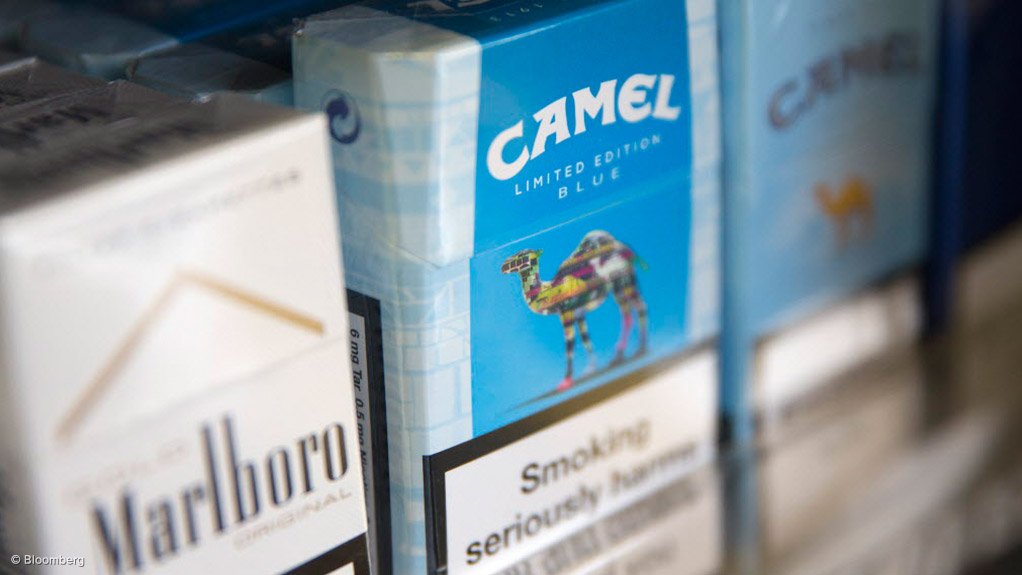The mix of Covid-19 and diseases like HIV and tuberculosis creates "a toxic concoction" with the potential to have a devastating impact on the lung health of populations with enhanced lung risks in South Africa, the Western Cape High Court heard on Thursday.
British American Tobacco SA and other cigarette manufacturers including tobacco farmers are challenging Minister of Co-Operative Governance and Traditional Affairs Nkosazana Dlamini-Zuma's Covid-19 lockdown ban on the sale of tobacco products.
Batsa is South Africa's largest cigarette manufacturer, whose brands include Dunhill, Peter Stuyvesant and Lucky Strike.
The minister has indicated that the aim of the ban is to stop people from smoking so that they do not get Covid-19 in a more severe form.
On Wednesday it was argued on behalf of Batsa that any benefit achieved by the continued ban on tobacco sales would be outweighed by far by the damage caused. It was also argued that the Constitutional rights of tobacconists and tobacco farmers are being violated by the ban, which is putting the entire tobacco value chain was at risk.
On Thursday advocate Karrisha Pillay SC, argued on behalf of the minister that the ban seeks to reduce - and not completely eliminate - incidents of smoking and to free up critical resources to respond to severe cases of Covid-19.
Pillay said it is important to look at the context within which the minister made her decision on the ban as the pandemic had not peaked yet in the country.
"This court's role is not to assess which side's scientific evidence is better, but the question is whether, having regard to the evidence the minister had regards to, it can be said that she made a reasonable and rational decision," said Pillay.
She said scientific studies simply provide context and any particular scientific paper cannot be seen in isolation, especially due to the fast-evolving nature in dealing with the disease.
Pillay referred to the view of an expert, which forms part of the minister's case and which states that the financial and human resources associated related to severe cases of Covid-19 is enormous and puts strain on the public health system.
Pillay said the minister, a medical doctor by trade, herself read the majority of the relevant medical literature.
"The literature by its nature is complex and compounded by the newness of the disease. The minister says that the available evidence indicates that smokers are at risk of developing a more severe form of Covid-19, therefore, making her ban a rational one," said Pillay.
Advocate Alfred Cockrell SC argued on behalf of Batsa that, based on what the minister alleges in her court documents, just 10% – 15% of the country's smokers will likely quit due to the ban because of the high price of illicit cigarettes.
Calling it a "perverse justification," Cockrell said the minister had not at any point said what would be done to stop people from purchasing illicit cigarettes.
Advocate Andrew Breitenbach SC, also appearing on behalf of the minister, said that in their evidence before the court, as far as he knows, there is no contention that smoking will be reduced due to the higher price of illicit cigarettes.
Cockrell further alleged that, based on figures given in the minister's court documents, Batsa's legal team made its own calculations and estimated that there would likely only be about 16.4 fewer ICU beds occupied at any given time due to the ban, compared to R38-million lost to the fiscus daily in excise duties. This was without counting job losses across the value chain, he added.
Pillay disputed the assumptions made by the Batsa legal team in order to reach the figure of 16.4 ICU beds. She said figures given in the minister's legal documents and on which the Batsa team made its assumptions and calculations, were simply an attempt by the minister to give the court an indication of what the impact of the ban could be.
Cockrell called into question government's medical basis for the ban, saying while there was no question that smoking is harmful to health, the core question is whether there is an association between smoking and the contraction of a more severe form of Covid-19.
EMAIL THIS ARTICLE SAVE THIS ARTICLE
To subscribe email subscriptions@creamermedia.co.za or click here
To advertise email advertising@creamermedia.co.za or click here











